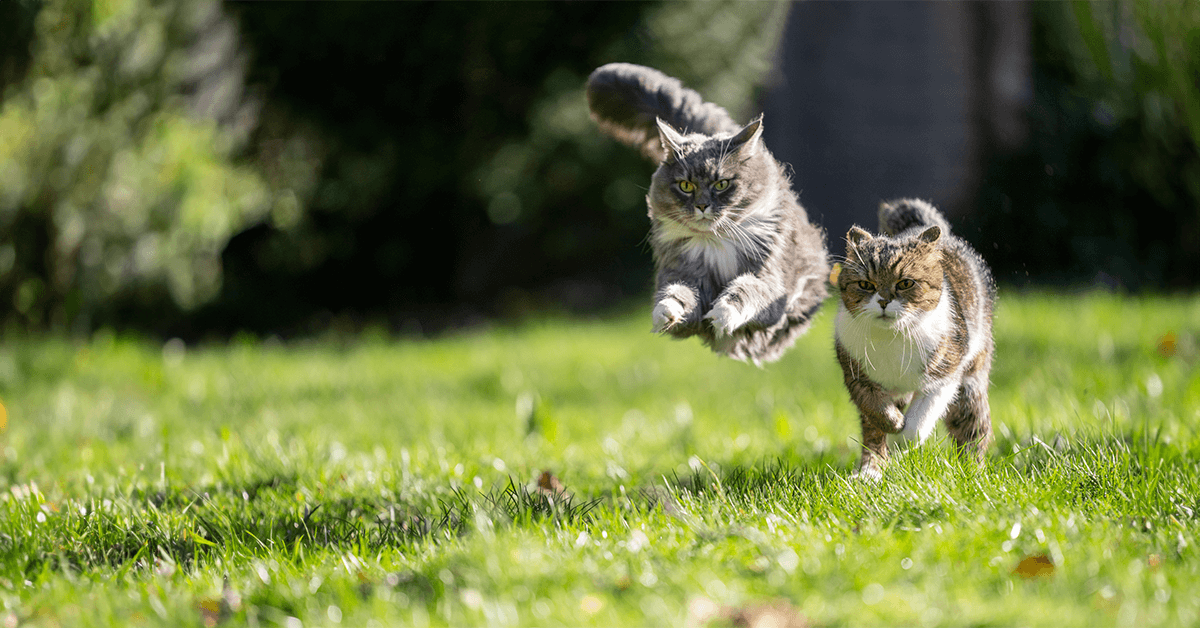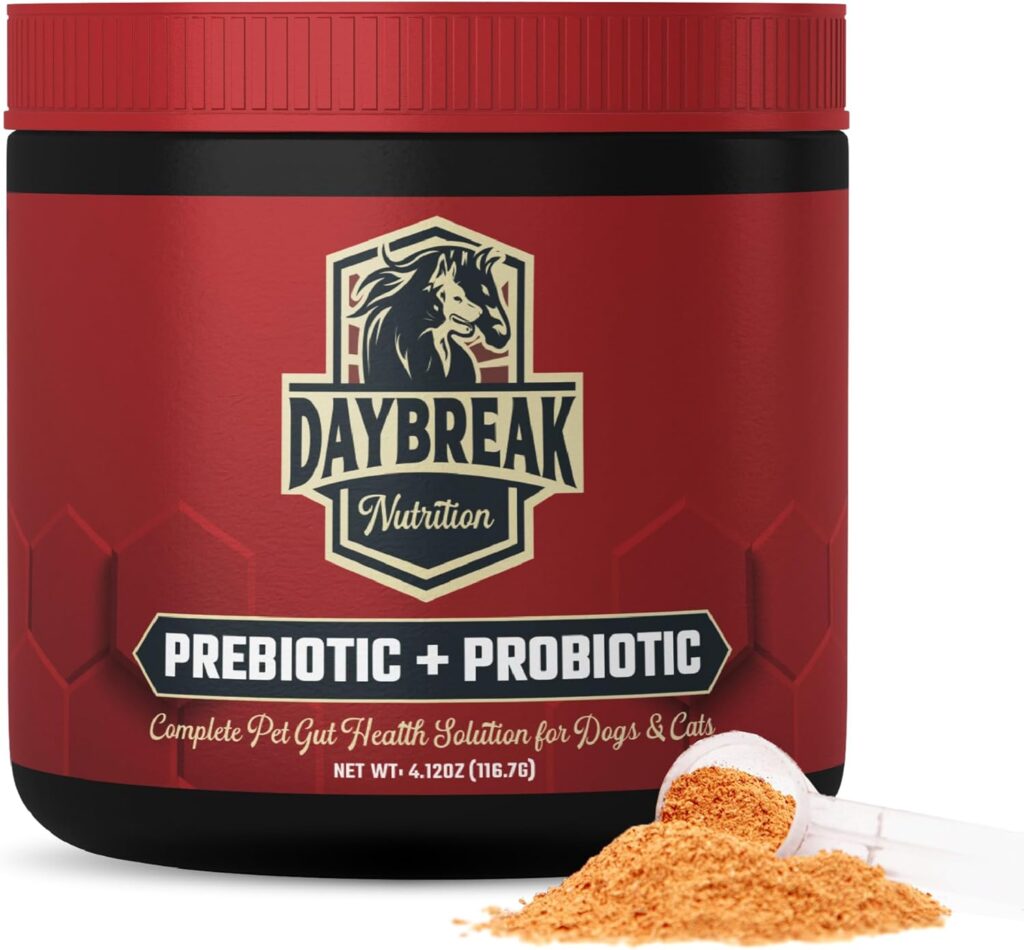Finding bloody stool in your cat’s litter box can be alarming and concerning.
Bloody cat poop is a sign that something is wrong in your cat’s digestive system, and it’s essential to address the issue promptly.
The causes of bloody stools can range from mild to severe, so identifying the cause and providing the right support is crucial for your cat’s health and comfort.
In this post, we’ll explore five ways to support your cat’s digestive health and help manage bloody stools, starting with the causes of bloody cat poop.
Let’s dive in!
What Causes Bloody Cat Poop?
There are several potential causes of bloody stools in cats, including:
- Gastrointestinal Infections: Bacterial, viral, or parasitic infections can cause inflammation in the gastrointestinal tract, leading to bloody stools.
- Inflammatory Bowel Disease (IBD): IBD is a condition in which the digestive tract becomes chronically inflamed, often resulting in blood in the stool.
- Food Sensitivities or Allergies: Some cats may have sensitivities to certain foods, causing digestive upset and bloody stools.
- Constipation or Straining: Severe constipation or straining to pass stool can cause small tears in the rectal tissue, leading to blood.
- Colon Cancer: Although less common, colon cancer can cause bloody stools and requires immediate veterinary attention.
- Parasites: Worms and other intestinal parasites can lead to inflammation in the gastrointestinal tract, resulting in blood in the stool.
While bloody stools can be caused by various issues, it’s important to consult your veterinarian to identify the underlying cause and determine the appropriate course of treatment.
5 Ways to Support Bloody Cat Poops
1. Use a Prebiotic and Probiotic Powder
One of the best ways to support your cat’s digestive health and alleviate bloody stools is by incorporating a prebiotic and probiotic powder into their diet.
Probiotics contain beneficial bacteria that help balance your cat’s gut microbiome, while prebiotics act as food for these good bacteria.
Together, they work to restore the balance of bacteria in the gut, support healthy digestion, and reduce inflammation, which can help alleviate the symptoms of conditions like IBD or gastrointestinal infections.
A high-quality prebiotic and probiotic powder, such as one designed specifically for cats, can improve stool consistency, promote healthy gut flora, and provide relief from digestive issues, including bloody stools.
Out of all the prebiotic and probiotics my cat has tried, she really loves Daybreak’s new Prebiotic + Probiotic.
Daybreak’s Prebiotic + Probiotic Powder is an ideal solution for cats with bloody stools, as it combines 6 billion CFU of probiotics with natural prebiotics from flaxseed and pumpkin to promote optimal digestive health.
This powerful formula contains 8 premium probiotic strains that support gut flora, improve stool quality, and soothe sensitive stomachs.
By balancing the digestive system and promoting healthy nutrient absorption, this supplement helps support symptoms of digestive upset, including bloody stools, ensuring your cat’s gut health is well-supported.
Simply follow the directions on the back and you’re good to go!
2. Adjust Your Cat’s Diet
A healthy, balanced diet plays a key role in managing bloody cat poop. If food sensitivities or allergies are causing digestive upset, consider switching to a hypoallergenic or limited-ingredient diet.
You may also want to opt for high-quality, easily digestible foods that are gentle on the stomach.
Some cats may benefit from wet food, which can help keep them hydrated and ease digestion.
Avoid feeding your cat low-quality food that contains fillers or artificial additives, as these can irritate the digestive system and exacerbate the issue.
Consult your veterinarian for recommendations on the best diet for your cat’s specific condition.
3. Provide Adequate Hydration
Dehydration can make constipation worse, leading to straining and the potential for blood in the stool.
Ensure your cat is drinking enough water by providing fresh, clean water at all times.
If your cat isn’t drinking enough, try offering wet food to increase their fluid intake.
Some cats prefer running water, so a pet water fountain can be an excellent option to encourage hydration.
Proper hydration supports healthy digestion and helps prevent constipation, which can reduce the risk of bloody stools caused by straining.
4. Use Medication or Supplements
Depending on the underlying cause of your cat’s bloody stool, your veterinarian may recommend medications or supplements to support healing and reduce inflammation.
For conditions like Inflammatory Bowel Disease (IBD), anti-inflammatory medications or immunosuppressants may be prescribed. If parasites are the cause, deworming medications can eliminate the issue.
Additionally, supplements such as omega-3 fatty acids or digestive enzymes may help improve gut health and reduce inflammation.
Always follow your veterinarian’s recommendations when using medications or supplements for your cat’s condition.
5. Regular Veterinary Checkups
If your cat has bloody stools, it’s essential to have them evaluated by a veterinarian.
A thorough examination, including fecal tests, blood tests, and possibly imaging (like an ultrasound or X-ray), will help determine the underlying cause of the bloody stools.
Early diagnosis and treatment are crucial to preventing further complications, especially if the cause is something more serious, like cancer or a chronic digestive issue.
Regular veterinary checkups can help catch any health issues early and keep your cat’s digestive system functioning properly.
Support Bloody Cat Poops
Bloody stools in cats can be distressing, but with the right care and attention, many of the underlying causes can be managed effectively.
Using a prebiotic and probiotic powder, adjusting your cat’s diet, ensuring proper hydration, and following your vet’s recommendations for medications or supplements are all important steps in supporting your cat’s digestive health.
Most importantly, always consult with a veterinarian to identify the cause and develop a treatment plan tailored to your cat’s needs.
With the right approach, your cat can recover and return to their happy, healthy self.
Thank you for reading!
Affiliate Disclosure
Some of the links on this site are affiliate links. This means that if you click on the link and purchase the item, we may receive an affiliate commission at no extra cost to you. I only recommend products or services that I believe will add value to my readers, however, some (not all) do pay us to be on this blog. Your support and theirs help keep this blog running, and I genuinely appreciate it.
Medical Disclaimer
The information provided on this website is for educational purposes only and is not intended as medical advice. This blog or the writer is not a licensed healthcare professional, and the content should not be used as a substitute for professional medical diagnosis, treatment, or advice. Always consult with your physician or other qualified healthcare provider before starting any new treatment or making any changes to your pet’s healthcare routine.

